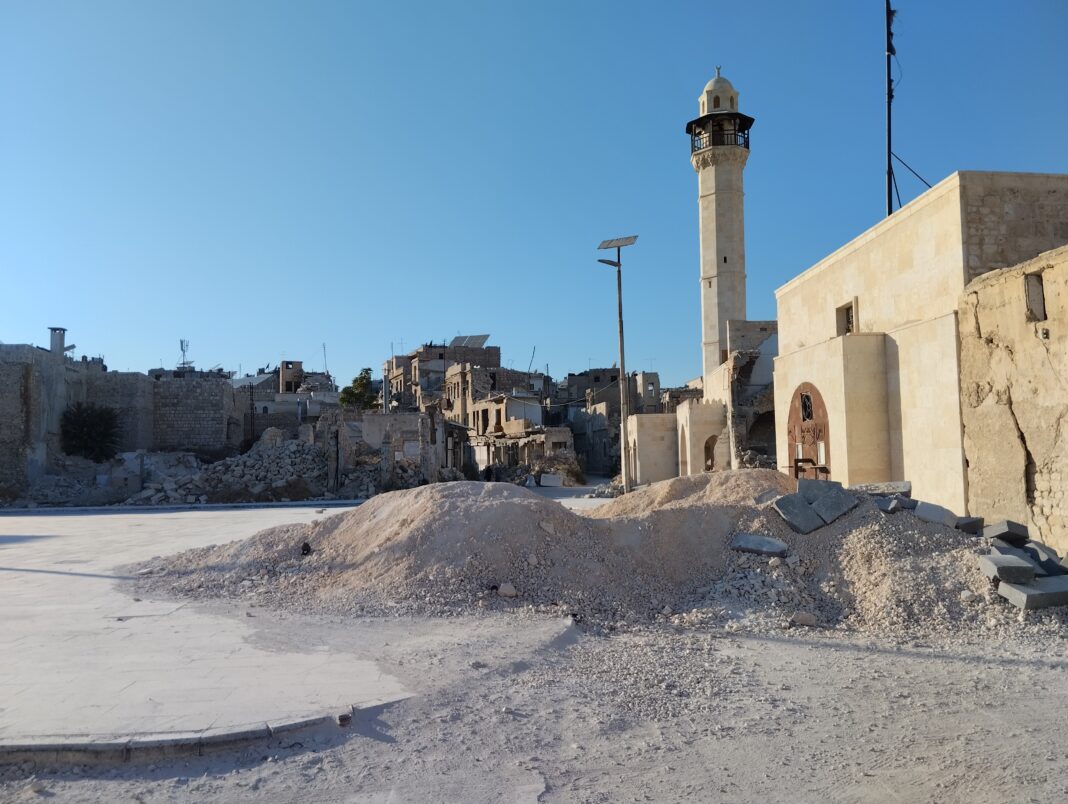By Angelo Maddalena*
The story that began last week with the author’s journey continues with what the Free Syrian Army was and is today. Read the first episode
PART 2 (A Look at the Free Syrian Army)
In his book “Passages in Syria” Samar Yazbek writes: “As I was soon to discover, the acronym ‘Free Army’, while suggesting a military force, actually refers to a series of extremely diverse groups, with characteristics and attitudes ranging from cruelty to compassion(…) These fighters are ordinary people, like those you meet every day on the street; what distinguishes them – as Yazbek’s text further reads – is their attitude to revolutionary ideals: some adhere to their moral principles, while others have completely lost sight of them, to the point that many of these groups seem to have very little in common with each other. Because of the remarkable diversity that distinguishes them, the brigades of the Free Army, or ‘brigades of popular armed resistance,’ as they could be called, are an exact copy of real-life diversity. Only in Syria does death hover among them as lightly as a feathe”.
According to a local source, the Free Syrian Army was instrumentalised by foreign forces, particularly radical Islamist elements, almost from the beginning, between June and August 2012. He also explains that the West has idealised this army of popular fighters while pretending not to see the genuinely dominant forces within this formation. The source also accuses the West of organising international conferences to glorify the so-called Free Army. At the same time, he informs us of the existence of a Third Front, made up of Syrian intellectuals who proposed more understandable and less radical solutions (such as opposing the fall of the Assad regime in favour of some reforms, which may have been the demand of the early peaceful protesters): “Positions that were not considered at all by the European press and international agencies.” Our source also speaks from personal experience as he claims he knew some of these Syrian intellectuals personally, as he worked in academia until 2012. He then recalls that some of these intellectuals are now in Europe because they were threatened by the regime.
Yazbek, again in the book “Passages in Syria,” writes: “In those days [August 2012], it was said in Saraqeb that only nineteen out of about 750 fighters were Arab mujahideen.” She also admits that even in some peaceful demonstrations and rebel positions, there were banners reading “Allah is the only true God” and “Muhammad is His Messenger.” In the text, she also reflects on the moral strength of the fighters: “Where do they draw their strength from? Who is more estranged from the meaning of life, us or them? Who is closer to its essence? Those who live in the face of death and laugh at it?” We should remember that Syrian President Assad was accused by the United Nations of using chemical weapons against the rebels and thus against many unarmed civilians and that in 2015, the popular fighters were on the verge of defeating the regime’s army. However, as revealed by testimonies collected by Yazbek in the book mentioned above, “We had managed to defeat the government army on the ground, but it was from the sky that the fierce and cowardly attack by the Assad regime came.” Air strikes rained down bombs between 2013 and 2018, leading to investigations and accusations by the Organisation for the Prohibition of Chemical Weapons (OPCW).
Continue…
* Angelo Maddalena is a narrator of grassroots conflicts and popular struggles, from the Val di Susa (Susa Valley) in Italy to Algeria and Buenos Aires. His reports often become theatrical monologues with songs like “Cugini di Algeria fratelli di Kabylia” (Cousins of Algeria brothers of Kabylia); “Alla Maddalena” (at the Maddalena); “la favola del 3 luglio in Val di Susa” (the 3 July’s tale in Susa Valley). In 2018 he published an investigative book entitled “Un anno di frontiera” (A Year on the Border) about the incomplete reception of migrants in Ventimiglia. He writes for “Mosaico di pace” (Mosaic of Peace) and in June 2023 a reportage of his was published in the fortnightly magazine “Rocca”. From 2013 to 2022 he was a regular contributor to “la Bottega del Barbieri”, a blog dedicated to social and investigative journalism, for which he curated the column “L’Angelo del lunedì” (The Mondays Angel). His latest book is “Taccuino di viaggio interiore (Notebook of an Inner Journey)”, accompanied by the CD of songs “Tutti positivi” (All Positive). In September 2023 the documentary short film “Mi sembra di viaggiare con te. Vita da Angelo, un artista e la sua ricerca di senso (It feels like travelling with you. The life of Angelo, an artist and his search for meaning)”, directed by Gabriele Perni.
























